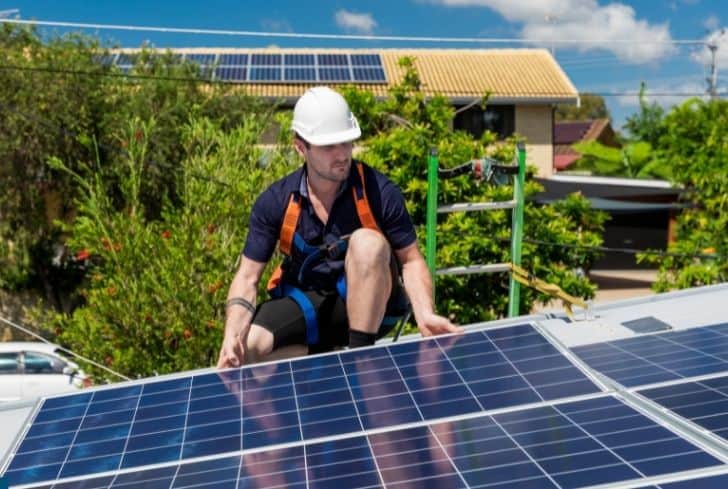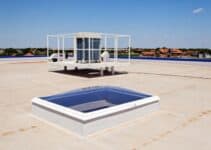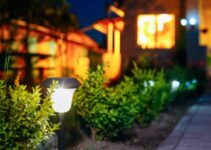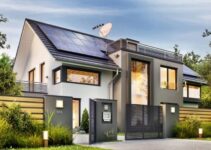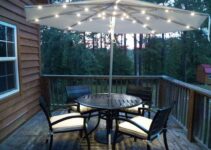Several misconceptions about solar panels have increased as the energy source rise in popularity. A common one that we would be addressing in this write-up is, are solar panels loud?
Generally, solar panels should not make noise. Unless there is a structural defect or a problem with the installation, solar panels should give you a noiseless and effective energy generation from the sun. However, you might hear some humming or barely noticeable sounds after installing your solar panels.
The humming is not due to the solar panels themselves but is associated with other solar system components. So, keep reading if you would love to understand why solar panels might make noise, where the noise is generated, and if it is normal for solar panels to make some noise.
Are Solar Panels Noisy?
Solar panels have no moving parts and have a noiseless design for energy production. Hence, solar panels aren’t noisy. If you have noticed some noise after your solar panel installation, it is from another part of your solar system and not the solar panel itself.
However, if you are confident that it’s from the solar panels, then this could be due to several reasons caused by poor installation. For instance, loose cables and installation angles are significant culprits of your solar panels making noise. How?
Several cables run between each panel and into your roof; therefore, if these cables are not properly clipped, they can become noisy and irritating as they move and hit the roof on windy days.
Usually, if your solar panels are noiseless but suddenly begin to make some noise, this might be due to a need for maintenance. It might also be because some loose cables need reclipping. Hence, be sure to contact a professional immediately to correct the defect.
Poor installation of panels can also lead to birds and animals using them as a shade or shelter. Their presence on the solar panels can cause inconvenient noises. Plus, bird droppings reduce the efficiency of your solar panels. So, ensure you hire a reliable installer to avoid errors during the initial installation.
Do Solar Inverters Make Noise?
Suppose you notice that the noise you hear from your solar panel system happens only during the day. Chances are, the noise is coming from your inverter. Inverters are the primary source of humming sound in every solar system installation.
There are two types of inverters: micro-inverters and string inverters. The micro-inverters are noiseless, and they should not make even the slightest hum. Hence, if you notice any noise from your micro inverter, you should reach out to your installation company.
On the other hand, String inverters commonly generate a humming noise during the day. The humming noise is due to the inverter working on converting the DC (direct current) to AC (alternating current) to power your home appliances. However, the noise level of a string inverter shouldn’t exceed 45 decibels.
This noise level isn’t enough to disrupt your everyday activities, and you can easily forget the noise in the background. However, if your inverter makes loud noises such as crackling, whistling, or buzzing sounds, you should contact a professional to come and check the inverter as soon as possible.
Usually, inverters shouldn’t generate loud noises. So if yours does, it could be due to a defect or a need for maintenance. Additionally, not all inverters hum. Thus, depending on the quality of your inverter, it might be noiseless.
Yet, if the silent hum disturbs you, it would be best to place your inverter in an enclosed space to reduce the noise.
Do Solar Panels Cause Vibration?
Solar panels shouldn’t cause any noise, including vibration. If your solar panels are experiencing shaky movement, this is primarily due to incorrect installation.
Usually, most solar panels aren’t fixed directly on the roof. A racking system or a solar panel mount supports the panels on any surface, including the roof. Thus, when an installer doesn’t install the solar panel correctly, vibrations can occur due to wind getting between the roof and the solar panels.
It is essential to note that if this happens for a long time, the components holding the panel can loosen. This can lead to a defect in the whole solar panel overtime. So, it is best to contact a reliable installer or installation company to inspect the solar panels and figure out a solution to the issue as soon as possible.
Do Solar Panels Rattle in The Wind?
Although solar panels shouldn’t make any noise, however, they can make rattling sounds if they are improperly installed. This occurs due to the wind passing through the small space between the roof and the solar panels.
Aside from the wind creating noises while it passes through openings in your solar panels, it can also pull and grab the panels causing creaking sounds. Still, you shouldn’t fret. With sound installation, there wouldn’t be a need to worry.
However, you need to carry out proper maintenance after every few years to ensure that your solar panels and roofs are in good condition. You could also consider fixing some rubber pads between the roof and solar panels to reduce the noise.
It is important to note that sometimes even well-installed solar panels can suffer some issues with the wind due to the natural gap between them and the roof. But, this should occur only with heavy wind and stops once the weather returns to normal.
Do Solar Panels Hum At Night?
Whether during the day or night, solar panels shouldn’t make any sound. So no, solar panels do not hum at night. The cause of humming in a solar panel system, as stated earlier, is the inverter which is responsible for converting currents.
However, even your inverter shouldn’t make a noise during the night because it turns off automatically at night. Why?
Solar inverters turn off automatically at night because there are no sun rays, so there is no generated electricity for the inverter to convert. Hence, if you hear disturbing noise from your inverter during the day or at night, it’s best to contact your installation company immediately.
Now, let’s look at some common causes of the noise in your inverter.
1. Inverter Fan
Despite the use of small fans by inverter manufacturers to continuously cool the internal components, this fan can sometimes be the reason for your noisy inverter. Inverter fans produce low-level noise, which isn’t enough to disturb you or your neighbors.
However, if the sounds are noisy and occur every time your inverter fan kicks in. Then, this could be due to the fan being unable to rotate freely due to dust or debris. Therefore, you should try to clean the fan and ensure it is moving smoothly. If the noise persists, you should contact an expert.
2. Overload
An overloaded inverter is most likely to make humming sounds at night. Overloading often happens due to installing solar panels that can generate more electricity than your inverter’s maximum capacity. This causes the inverter to operate at high power at all times.
Overloading your inverter would not only shorten its lifespan but also causes the inverter to overheat. Hence, when your inverter makes a noise due to overload, you might notice that your fan keeps running, and the humming noise remains constant all through the night.
In addition to overloading, overheating can also cause damage to the inverter’s cells and lead to broken wires. This won’t only reduce the efficiency of your inverter, it might also lead to unrepairable defects. So, your inverter should be placed in a cool and shaded area at all times, not in the direct sun.
Are Solar Panels Noisy in The Rain?
Think of some raindrops against a glass or your window panes. Are they noisy? No, right. Considering the materials solar panels are made from; they are pretty solid and not loud in the rain. They also do not create any disturbance when it rains since they aren’t directly attached to the roof.
So, solar panels aren’t noisy in the rain. They act as a barrier to reduce the noise from the rain heard indoors. Therefore, if your solar panels create loud noises in the rainfall, that is a sign for you to contact your installer for an inspection.
Frequently Asked Questions
Do Solar Panels Make Your House Hotter?
Solar panels do not make your house hotter. It’s quite the contrary as it keeps your home cool. Solar panels do this by shading your roof from getting direct heat from the sun.
There’s also space for ventilation due to the distance between the roof and your panel. Hence, solar panels do not only reduce the heat in your home by absorbing the heat that should have hit your ceiling directly. It also stores heat and light energy for use.
Do Solar Panels Beep?
No, solar panels do not beep, but inverters make beeping sounds. There are several reasons for your inverter to beep continuously, but a common cause is when there is a capacity overload. The beeping is a sign to inform you of the excess so that you can remove the extra load.
Another common reason your solar panels can make beeping sounds is when it runs on the battery power instead of regular electricity or when your battery is low. Beeping sounds in your inverter is usually an alarm to alert you, so be sure to pay attention to them.
Do Solar Farms Emit Noise?
Considering solar panels have no moving parts, unlike a wind turbine, one would think solar farms wouldn’t emit noise. Yet, this is untrue as solar facilities have to produce more energy every minute due to the renewable energy hitting the panels directly every second.
The generation of heat and light energy from the sun every minute requires more equipment such as inverters and transformers to convert the sunlight to electricity.
Therefore, the low-level sounds of these inverters and transformers during the conversion can accumulate to emit noise. Although the noise is similar to humming sounds, they result in longer wavelengths due to the low frequency.
Conclusion
Solar panels shouldn’t make any noise aside from the silent hum from the inverter and some occasional wind noise during heavy wind. Therefore, if you are experiencing frequent wind or solar panel noise, you should immediately get in touch with an installer.
If your inverter makes loud noises during operation or at night, you should also ensure to get it checked as soon as possible before it causes unrepairable damage.
